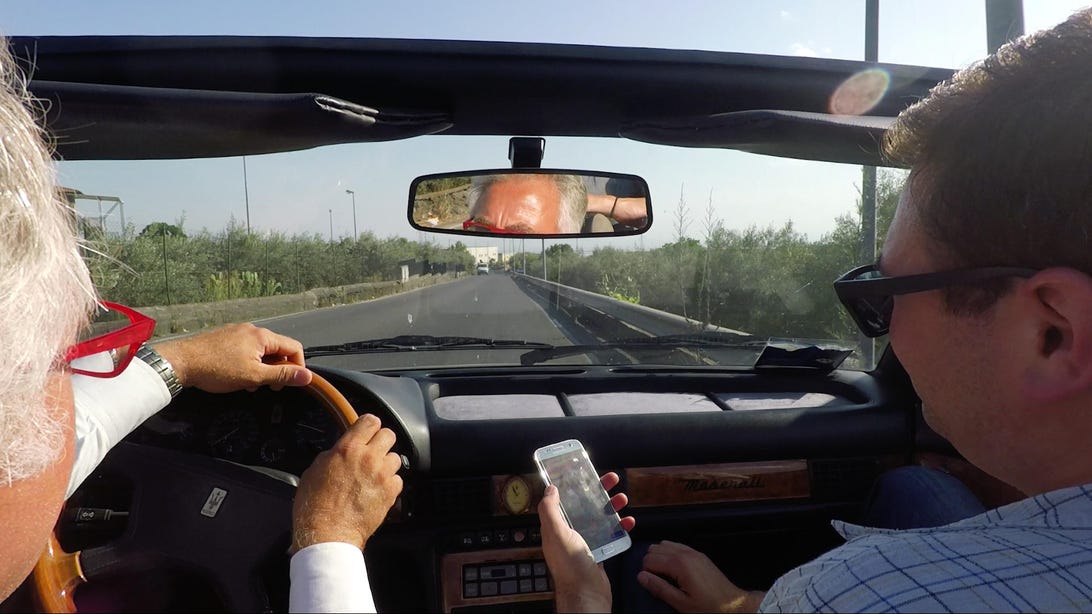By Ian Sherr
A
little after 2 p.m. on an impossibly muggy summer day in June, I squeeze my sweaty, 6-foot-1-inch body into the passenger seat of Antonio Puliafito’s shiny black Maserati.As excited as I am about speeding along the Italian coast in a luxury convertible, Puliafito isn’t showing off what his nifty ’90s-era, 6-cylinder Italian sports car can do. He isn’t even particularly interested in the ride, though we both relish the breeze after a punishing day in the heat.
Puliafito wants me to look at his phone.
On it is a map of the area we’re navigating in the hilly city of Catania on Sicily, the island just off the toe of Italy’s boot-shaped mainland. The city dates back nearly 2,800 years, when the Ionians settled there. Today, Catania is home to 313,000 people, in addition to industrial, chemical and manufacturing companies like pharmaceutical maker Etna Biotech.
I’ve flown more than 6,568 miles from the heart of the tech revolution in Silicon Valley to this coastal Sicilian town where I was promised a taste of the future. And maybe some pasta. More specifically, I’m here to get a glimpse of what the city of the future will look like.
I also talked to people working on smart city projects in London, San Diego and Louisville, spoke with experts across the tech industry — including “father of the internet” Vint Cerf — and sat down with Chicago Mayor Rahm Emanuelto understand how governments plan to make their cities “smarter.”
Sicily is working to become home to some of the world’s truly smart cities: A place that keeps its streets clean by alerting the sanitation department when public garbage bins are full. A place where you can unlock your office door and turn on your computer before you even arrive at work. A place where you can learn about a medieval building’s rich history just by pointing your phone at it. And a place where that phone can also find, reserve and direct you to a parking space with the tap of a button — which is what Puliafito is about to show me as we steer around Catania’s mountains.

Puliafito, 51, calls this two-year prototype effort SmartMe (pronounced “SmartMAY”). With it, the University of Messina computer engineering professor wants to push the cities of Catania, Messina and Palermo alongside the techiest cities on the planet — and ahead of San Francisco and San Jose, in California’s storied Silicon Valley.
If Puliafito and his team of programmers, designers and partners succeed, the sensors installed in parking lots and on buildings, bus stops and trash cans — and everyday objects in between — will plug into SmartMe and talk to one another as well as our phones. Just as important, all that information will be pulled together on the SmartMe website, where everyone can see it.
“What we’re trying to do is to integrate all these different services together,” says Puliafito, who also leads SmartMe.io, a spinoff from the University of Messina that’s hoping to bring this technology to more cities that want it. “People will realize that they live better.”
